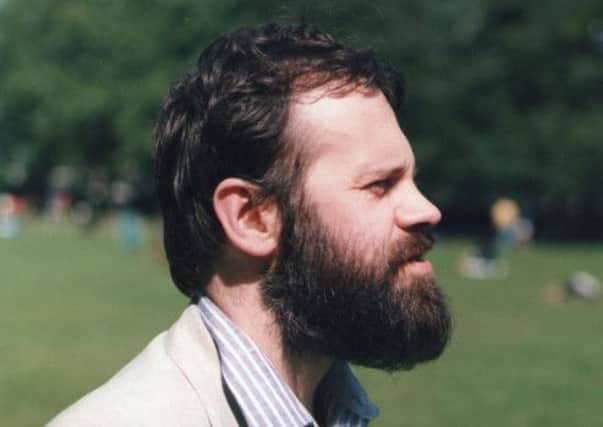Obituary: Malcolm MacDonald, music critic and editor


Music critic and editor Malcolm MacDonald, who also went by the professional name Calum MacDonald and has died aged 66, will be remembered as a pioneering music editor, essayist and critic.
Malcolm was the son of two Edinburgh teachers, Donald MacDonald, who taught geography at the Royal High School and Christina Lamont, a primary-school teacher.
Advertisement
Hide AdAdvertisement
Hide AdHe was born in Nairn, and his family moved into their Edinburgh New Town flat when he was aged five. His parents acquired a pianola which sparked his early interest in music.
He went on to become a pupil at the city’s Royal High School where the school record society introduced him to the riches of classical music and he explored a wide repertoire on LP with like-minded contemporaries. “An unforgettable English teacher”, Hector MacIver, poet and writer, guided him to read English at Downing College, Cambridge, where he remained for a postgraduate year studying music.
He moved to London to look for work in the music business and his first, short-lived employment was as tape librarian for Ted Perry at Saga Records. Various temporary jobs, including writing record reviews for Records & Recordings, followed.
To distinguish himself from another Malcolm MacDonald, long-established on Gramophone magazine, he adopted the professional name Calum MacDonald and wrote under both names over the years.
Introduced to Gramophone magazine, he compiled the Gramophone Classical Catalogue for four years. His enthusiasm for the music of Havergal Brian took him to Robert Simpson at the BBC, who introduced him to me in 1971 at a rehearsal of Havergal Brian’s Ninth Symphony. Simpson arranged his first commission, writing about Brian, for The Listener in July 1971.
But the key to his future success came when, in 1972, he was appointed assistant to David Drew at Boosey & Hawkes, where he worked on Tempo, the quarterly review of modern music, before becoming its editor. In a world of dumbing down and the advance of pop music, it was one of the really great cultural editorships of our time.
He also assisted Drew in bringing Kurt Weill: a handbook to publication and remained at Boosey & Hawkes until the end of 2013.
On the thread of his work for Tempo and writing for reviewing journals, including BBC Music Magazine, International Record Review and Gramophone, MacDonald’s achievement focuses on his succession of remarkable books starting with his three-volume exploration of the symphonies of Havergal Brian for Kahn and Averill (1974, 1978 and 1983), his pioneering and very readable book on Schoenberg for The Master Musicians (1976 rev 2008), for whom he also wrote a wide-ranging study of Brahms (1990, 1993).
Advertisement
Hide AdAdvertisement
Hide AdHowever, they were less keen on his long-gestated Varèse: Astronomer in Sound, which was eventually published by Kahn & Averill in 2003.
Celebrated for his many record reviews and CD booklet notes, and the BBC Music Magazine Top 1000 CDs Guide (1996, 1998) which he edited with Erik Levi, he also published two substantial collections of Havergal Brian’s musical journalism.
I commissioned the first edition of his John Foulds and his music (1975, 1976), and MacDonald also compiled a succession of catalogues of composers as varied as Shostakovich and Dallapicolla for Boosey & Hawkes, also writing the analytical and historical introductions to a variety of scores by Bartók, Britten and many others.
One of his special interests was the music of Ronald Stevenson, and his Musical Biography of Stevenson, commissioned by the National Library of Scotland, was published in 1989.
Along with Stevenson, composers Francis George Scott and Ronald Center provided a fascinating case study for his essay on 20th-century Scottish music for a symposium promoted by the Finnish Embassy in 1992.
In addition to voluminous writing on music, he also recalled the Edinburgh of his youth in his short, heavily illustrated tourist guide – called Edinburgh – billed as “a personal view of Edinburgh by a writer brought up in the city” (1985).
He gave many broadcasts and pre-concert talks, and the thoroughness of his discussion on these occasions is clear from the script of his CBSO talks on John Foulds from February 2004 which can be read on the internet.
Before the BBC’s production of Fould’s A World Requiem in 2007 he attracted one of the largest audiences ever seen for such a pre-concert event.
Advertisement
Hide AdAdvertisement
Hide AdAt Cambridge, Malcolm described himself as “a mover of the University New Music Society”, but he was always somewhat reticent about his own compositions, although I warmly remember his impressionistic Hebridean piano prelude which he called Waste of Seas.
His early death is a waste indeed, when he still had so much to give, and he died in the middle of a project writing notes for another John Foulds CD.
He is survived by his partner Libby Valdez to whom our sympathy and condolences go.